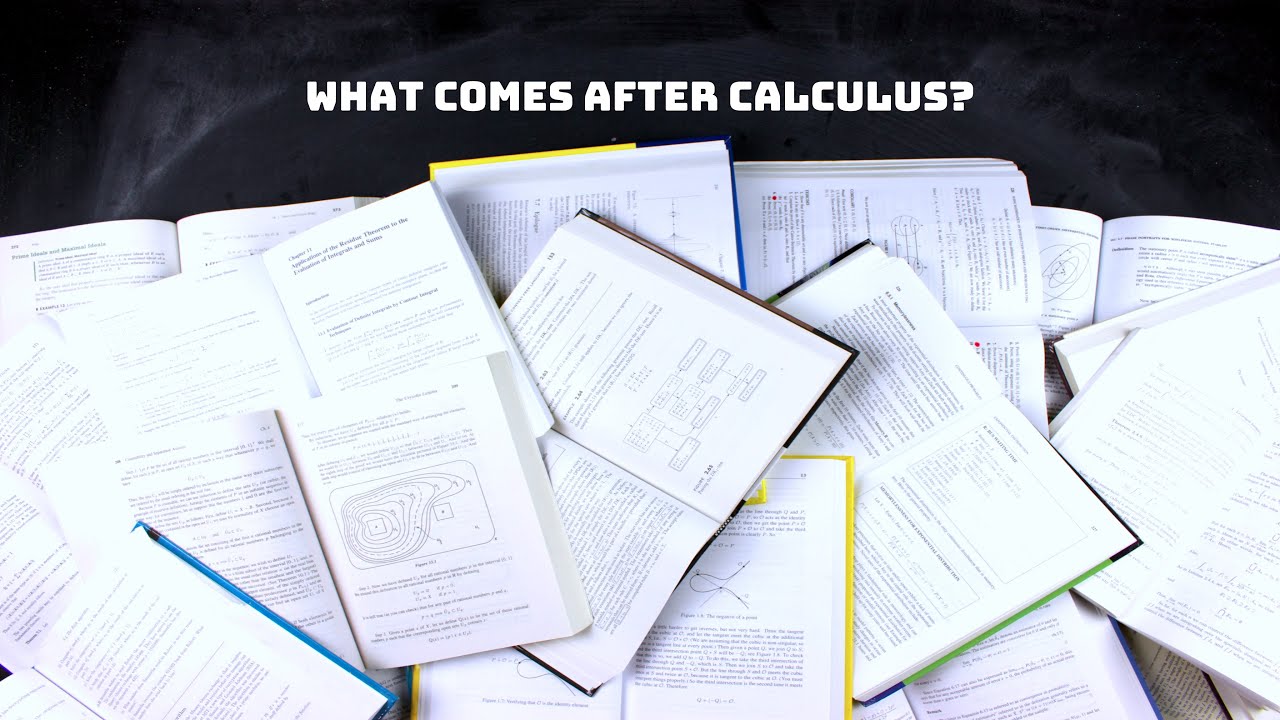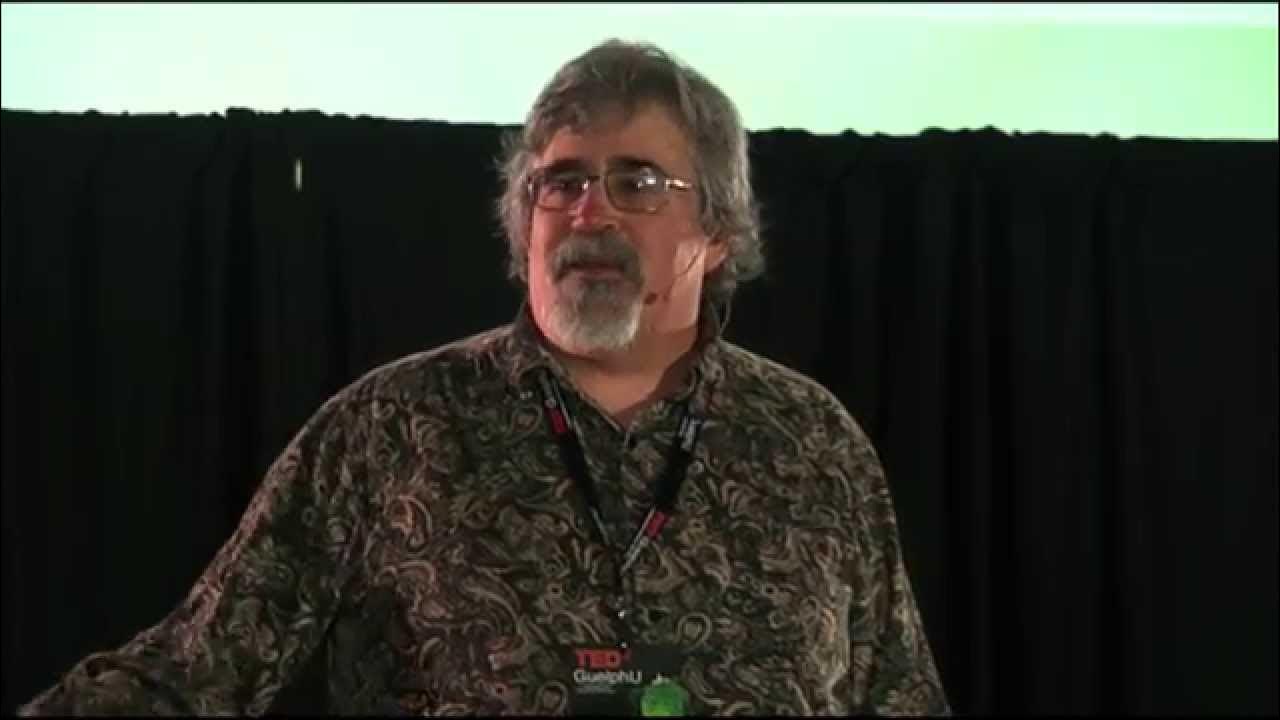The 7 Levels of Math
TLDRThe speaker humorously recounts their journey with mathematics from a passionate childhood interest, marked by creative counting methods and mental math strategies, to a gradual disillusionment as the subject becomes more complex with the introduction of letters and advanced concepts like calculus. They reflect on the practicality of math in everyday life and question its relevance beyond basic skills, ultimately highlighting the struggle and frustration many feel in their math education journey.
Takeaways
- 🍎*Math's Initial Appeal*: The speaker's early love for math was akin to a loyalty that grew during free time, comparing it to smart TV characters like Jimmy Neutron and Phineas and Ferb.
- 🧠 **Math's Evolution*: As the speaker grew older, math transformed from a delightful activity to a more challenging subject, with complexities that made it feel stale over time.
- 👋 *Counting Level 1*: The basics of math began with counting, using fingers to calculate simple addition and subtraction problems, up to 30 by counting sections of fingers.
- 🤔 *Mental Math Level 2*: The transition to mental math was a significant hurdle, where the speaker initially struggled but eventually adapted by using creative methods like drawing dots on their arm.
- 🚀 *Speedy Math Level 3*: The speaker's proficiency in math peaked with 'speedy math', where they excelled at solving problems quickly, even using tricks to distract classmates during class.
- 🔠 *Algebra Level 4*: The introduction of letters into math equations marked the beginning of a more tumultuous relationship with the subject, as the speaker felt math was straying from its numerical roots.
- 📐 *Geometry Level 5*: The complexities of geometry, particularly the focus on triangles and trigonometry, felt overwhelming and disconnected from practical, everyday applications.
- 🧮 *Calculus Level 6*: Calculus was perceived as an insufferable topic that caused significant stress and a loss of confidence in math, with its abstract concepts feeling detached from real-world relevance.
- 🏁 *Level 7 - The Decision*: The final stage of the speaker's math journey was a crossroads of either quitting or finishing, reflecting on the overall purpose and utility of studying math academically.
- 💡 *The Search for Purpose*: The speaker questioned the practical application of advanced math topics in daily life, contrasting with the immediate utility of other subjects like English and basic science concepts.
- 🚫 *The Toxic Relationship*: The script concludes with the speaker viewing the mandatory study of math as a forced, toxic relationship, questioning its relevance and the system's insistence on its study.
Q & A
What was the speaker's initial relationship with mathematics?
-The speaker initially loved mathematics as a kid, engaging with it during free time and aspiring to be like smart TV show characters like Jimmy Neutron and Phineas and Ferb.
How did the speaker overcome the limitation of using fingers for counting?
-The speaker overcame this by counting sections of each finger up to 15 on each hand, allowing them to count up to 30 without needing additional fingers.
What was the speaker's creative solution for mental math when dealing with larger numbers?
-The speaker drew 50 dots on their arm to help with mental math, using the dots to count and add larger numbers.
How did the speaker describe their experience with speedy math?
-The speaker enjoyed speedy math, recalling the satisfaction of quickly solving math sheets and being among the top finishers in class.
What caused the speaker's relationship with math to become turbulent?
-The introduction of letters into mathematical equations marked the beginning of a turbulent relationship for the speaker, as they felt it blurred the lines between math and other subjects like English and made math more complex.
How did the speaker feel about the use of Greek letters in mathematics?
-The speaker felt that the inclusion of Greek letters, like Alpha and Beta, made math feel more like a language class and further complicated their understanding.
What happened when the speaker missed a class during the final stages of secondary school?
-Missing a class led to the speaker feeling overwhelmed by the new concepts of triangles, sine, cosine, and tangent, making it difficult to catch up.
What was the speaker's perspective on calculus?
-The speaker viewed calculus as an insufferable topic that caused a loss of time, sanity, and self-confidence, and felt it was a final boss in math that derived nothing of value for them.
What was the speaker's ultimate conclusion about the utility of mathematics in everyday life?
-The speaker questioned the practical utility of advanced mathematics in everyday life, feeling that it was a toxic relationship forced upon students, with limited meaningful application outside of academics.
How did the speaker's attitude towards math evolve over time?
-The speaker's attitude towards math evolved from a deep love and enjoyment, particularly in the early stages of learning, to a growing dislike and frustration as the subject became more complex and seemingly less relevant to their life.
What was the speaker's main question regarding the purpose of learning math?
-The speaker often asked themselves 'why' they were learning math, questioning its practical application and relevance in their immediate lives beyond getting good grades.
Outlines
📚 The Evolution of a Math Enthusiast
The speaker reminisces about their initial love for mathematics, comparing it to popular smart TV characters and expressing a deep loyalty to the subject. They discuss the different levels of math they encountered, starting from basic counting with fingers to the complexities of algebra and beyond. The speaker humorously describes their struggles with mental math and the introduction of letters into mathematical equations, which marked the beginning of their waning interest in the subject.
🏃♂️ The Downward Spiral in Math Education
The speaker narrates their journey through increasingly complex levels of math education, highlighting the challenges faced at each stage. They describe the frustration of missing a crucial lesson due to illness and the overwhelming nature of advanced topics like trigonometry and calculus. The speaker expresses a sense of loss for the time and effort invested in learning math, questioning its practical application in everyday life and ultimately feeling disillusioned with the subject's academic approach.
Mindmap
Keywords
💡Mathematics
💡Jimmy Neutron
💡Hurdles
💡Mental Math
💡Speedy Math
💡Algebra
💡Trigonometry
💡Calculus
💡Quit or Finish
💡Practical Application
💡Academic Standpoint
💡Toxic Relationship
Highlights
Childhood affinity for mathematics due to its enjoyable nature.
Comparison of the initial fondness for math to loyalty, likening it to a dog's loyalty to its owner.
The transition from enjoying math to experiencing difficulties, likened to McDonald's fries going cold.
Level 1 of math: Counting, and the method of counting up to 30 using finger sections.
Level 2 of math: Mental Math, and the challenge of adapting from finger counting to brainpower.
Level 3 of math: Speedy math, the excitement of solving math sheets quickly and the competitive aspect of it.
Level 4 of math: Adding letters, the beginning of a turbulent relationship with math due to the introduction of variables.
The frustration with the inclusion of Greek letters in math, feeling like it turned into a language class.
Level 5 of math: Triangles, the overwhelming complexity introduced in secondary school and the feeling of being left behind after missing a class.
Level 6 of math: Calculus, the perceived difficulty and lack of practical application in everyday life.
The emotional toll of calculus, including loss of time, sanity, and self-confidence.
Level 7 of math: The decision to quit or finish, reflecting on the academic journey of math and its purpose.
The questioning of the practical utility of advanced math topics in everyday life.
The feeling of a forced, toxic relationship with math due to its widespread requirement in education.
The initial use of math as a tool for simple counting and its evolution into complex problem-solving.
The contrast between the tangible learning outcomes in other subjects and the abstract nature of advanced math.
The personal journey from math enthusiasm to disillusionment and the search for meaningful application.
Transcripts
Browse More Related Video

Why the UK has a problem with maths | FT Film

Five Principles of Extraordinary Math Teaching | Dan Finkel | TEDxRainier

WHAT COMES AFTER CALCULUS? : A Look at My Higher Level Math Courses (I Took 22 of them).

My regrets studying mathematics

What is Pre-Calculus?

Why teach calculus?: Daniel Ashlock at TEDxGuelphU
5.0 / 5 (0 votes)
Thanks for rating: